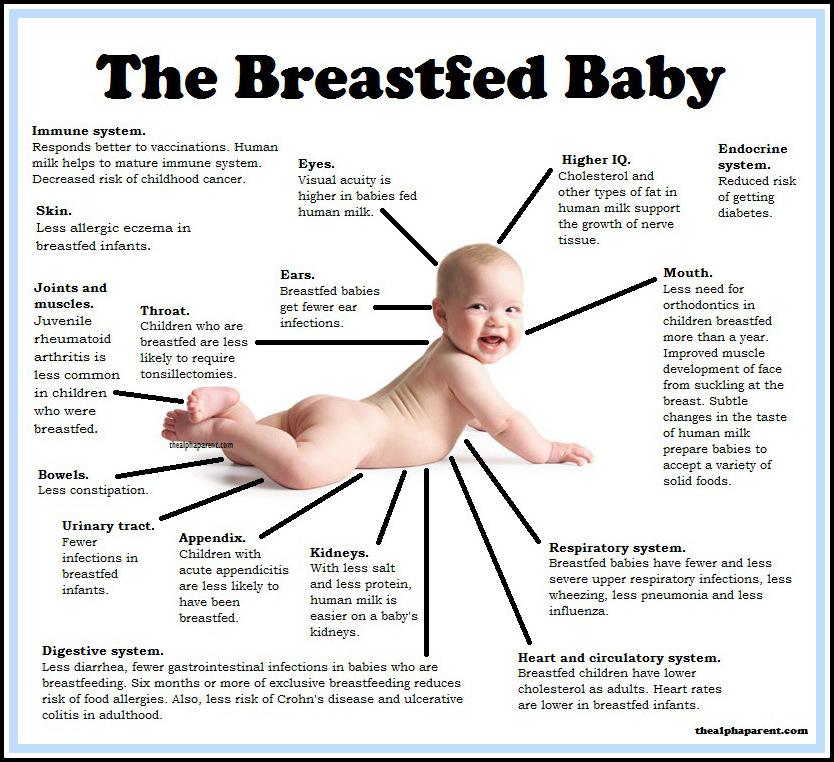
A major new Series on breastfeeding, published in “The Lancet”, finds that despite strong health and economic benefits from breastfeeding, few children are exclusively breastfed until 6 months, as recommended by WHO. Globally, an estimated 1 in 3 infants under 6 months are exclusively breastfed – a rate that has not improved in 2 decades.
Breastfeeding has substantial benefits for women and children in rich and poor countries alike, and now the evidence is stronger than ever.
New WHO estimates published in “The Lancet” reveal that increasing breastfeeding to near-universal levels could save more than 800 000 lives every year, the majority being children under 6 months. In addition, nearly half of all diarrheal diseases and one-third of all respiratory infections in children in low- and middle-income countries could be prevented with increased rates of breastfeeding.
Children who are breastfeed perform better in intelligence tests, are less likely to be overweight or obese, and less prone to diabetes later in life. Mothers who breastfeed also reduce their risk of developing breast and ovarian cancers. At current breastfeeding rates, an estimated 20 000 deaths from breast cancer are prevented and an additional 20 000 could be saved if rates improved.
Breastfeeding strengthens the economy
Beyond health, the new Series presents a strong economic case for investing in promoting and protecting breastfeeding worldwide. The findings from WHO and partners estimate that global economic losses from lower cognition associated with not breastfeeding reached more than US$ 300 billion in 2012, equivalent to 0.49% of the world’s gross national income.
Boosting breastfeeding rates for infants below 6 months of age to 90% in Brazil, China, and the United States of America, and to 45% in the United Kingdom would cut treatment costs of common childhood illnesses, such as pneumonia, diarrhea and asthma, and save healthcare systems at least US$ 2.45 billion in the United States, US$ 29.5 million in the United Kingdom, US$ 223.6 million in China, and US$ 6.0 million in Brazil.
Yet, worldwide low levels of optimal breastfeeding affect both high- and low-income countries. Fewer than 1 in 5 infants are breastfed for 12 months in high-income countries and only 2 out of 3 children between 6 months and 2 years receive any breast milk in low- and middle-income countries.
Protecting and promoting breastfeeding
Although the World Health Assembly adopted the International Code of Marketing of Breastmilk Substitutes in 1981 to protect the public from inappropriate marketing strategies, it has been has been weakly enforced by countries. As a result, aggressive marketing of breast-milk substitutes is undermining efforts to improve breastfeeding rates, with global sales expected to reach US$ 70.6 billion by 2019.
To address this issue, the Global Breastfeeding Advocacy Initiative, led by UNICEF and WHO in collaboration with international partners, will be providing leadership to improve breastfeeding rates. As a first step, WHO and UNICEF have created a Network for Global Monitoring and Support for Implementation of the International Code (NetCode) with the purpose of strengthening capacity for Code monitoring, adherence and implementation.
Beyond combating marketing of breast-milk substitutes, countries need to invest in policies and programmes that support women’s breastfeeding. Supportive health-care systems, adequate maternity leave entitlements, workplace interventions, counseling and educational programmes can all help to improve breastfeeding rates.
Breastfeeding has also been identified as a high impact intervention to achieve the Global Strategy for Women’s, Children’s and Adolescents’ Health (2016-2030), which was launched alongside the Sustainable Development Goals as a roadmap for ending preventable deaths in a generation. Breastfeeding is important to child survival in all settings, but also to ensuring that children can thrive and reach their full cognitive and developmental potentials throughout their lives.
Source: WHO
 FR
FR EN
EN AR
AR








